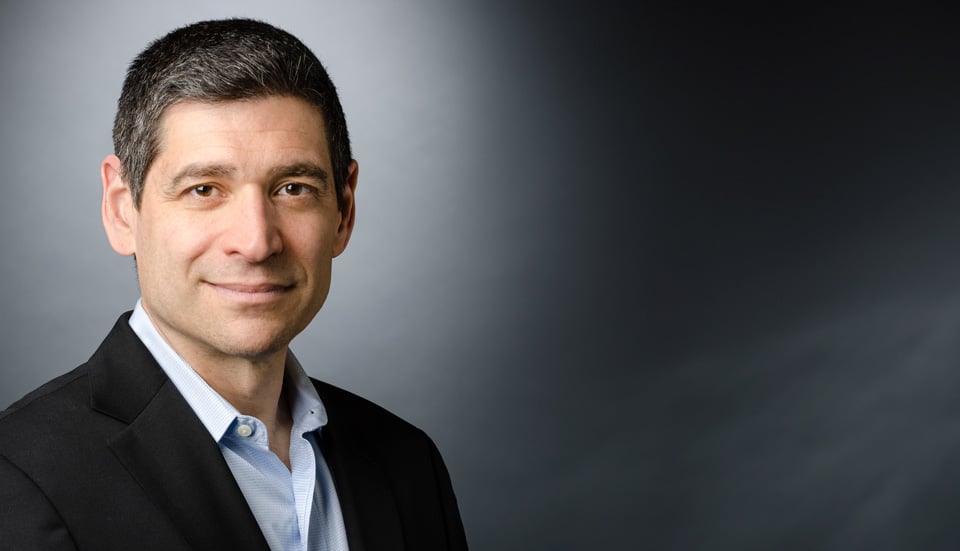Is your CEO ready for the future of branding?

CEOs can have an outsized impact on branding and brand value, from the influence (good and bad) of their personal brands on company performance, to their role as brand champions (or “guardians” as Brand Finance puts it in their annual index of CEO performance). Consequently, your top leader needs to be as actively forward-looking in matters of brand as does your CMO (Chief Marketing Officer).
With that in mind, we sat down recently with Mitch Duckler, whose new book “The Future Ready Brand” looks at three critical spheres of opportunity through the eyes of 43 CMOs at global companies such as McDonald’s, Salesforce and Sephora. Here are a few highlights of that conversation:
In Section One of your book, “Societal Shifts,” you look at several factors, including brand purpose. How should CEOs be looking at that going forward, particularly as they strive to align business and brand strategy?
Mitch Duckler: The first thing I would say is that the business and brand strategy often are aligned, and when they are it’s very powerful. But a brand’s positioning does not have to be its business strategy. There are a lot of purpose-driven companies who don’t define their external-facing brand by their purpose.
In fact, one of the things I cover in that chapter is the notion of different levels of purpose. At the most basic level is Corporate Social Responsibility (CSR), such as having a cause you support. Most companies of a certain size have that, which is all well and good.
And then there are the truly purpose-driven companies. The purpose is in your DNA. You hire for it. It. It’s the reason why you get out of bed in the morning and go to work. It’s more than just a CSR campaign.
The highest level of alignment is where you define your brand positioning by your company purpose. So, the first question is, where do you want to be on that spectrum?
In that “Societal Shift” section, you also deal with what you call the emergence of Gen Z. There’s already been a lot written about this generation, including their relationship to purpose-driven brands. Did you uncover any surprising trends or predictions from your interviewees?
Mitch Duckler: The CMO of Coty, Stefano Curti, talked about the two faces of Gen Z. There’s the “Me” and the “We.” Me is defined by individuality and self-expression — which demands personalization. They’re thinking about brands and the choices that they make in product selection and so forth as reflections of who they are as individuals. They choose products and brands that they believe express themselves. They’re all about connection and experience.
Then there’s the We of Gen Z, which is, I think, the more common association with this generation, that they seek deep meaning and purpose and embrace things like DEI, ESG and social causes.
But what may surprise you is that Coty’s research revealed that the Me side – the young people who are into self-empowerment and escapism — represents 65% of the generation. Whereas the cause-driven We side is just 35% of this generation .
These aren’t necessarily two completely different groups or segments per se, and there are a lot of Gen Zers who embrace both of those — or neither. But it’s important to think about the combination of those different attributes when you factor this generation into your plans.
So, personalization seems like a prerequisite for future brand success, and the second section of your book deals with technology’s impact on that. Did your CMO interviewees offer any revelations there?
Mitch Duckler: The primary enabler of personalization will be Artificial Intelligence (AI). It will help you categorize consumers at a very fine level, predicting not only your most promising prospects but also what they will respond to. This will fuel two powerful concepts: micro-segmentation and hyper-personalization.
Today, a typical company’s market segmentation might produce five or six customer segments. But with AI, you could have literally thousands of segments, almost down to the one-to-one level that Don Peppers predicted decades ago (and which seemed like a pipe dream then). And that same technology will enable hyper-personalization (at the micro-segment level), so you can tailor your brand offering and experience to the individual.
Say you’re a Gen Z sunworshipper in California. You walk into a Sephora store, tell them “I’m a 24-year-old surfer with oily and very sensitive skin.” What’s the perfect sunscreen and SPF for this blond, hazel-eyed woman who wants to keep her young skin looking that way, even though she spends hours at a time in the sun, out in the water? AI will let the salesperson take all those particulars into account and instantly recommend the best three products, while AR (Augmented Reality) will show how much color the customer will likely get at various lengths of exposure using each of those products. That’s hyper-personalization.
What should CEOs look for from their CMOs in the future?
They should expect them to be much more sophisticated, as much left-brained and fact-based as right-brained and intuitive. Their CMOs don’t need to be data scientists, but they do need a deep understanding of what the data and technology can do for them. The future of brand and marketing leadership isn’t just about data and reporting — it’s about anticipating and predicting consumer preferences, behaviors, and outcomes to a much greater extent and with far greater reliability than ever before.
Written by Chuck Kent.
Have you read?
World’s Best Countries To Invest In Or Do Business.
World’s Most Startup-Friendly Countries.
World’s Best Countries For Quality of Life.
Largest Economies Europe In 2024.
GDP of the BRICS countries (2000 to 2028).
Bring the best of the CEOWORLD magazine's global journalism to audiences in the United States and around the world. - Add CEOWORLD magazine to your Google News feed.
Follow CEOWORLD magazine headlines on: Google News, LinkedIn, Twitter, and Facebook.
Copyright 2025 The CEOWORLD magazine. All rights reserved. This material (and any extract from it) must not be copied, redistributed or placed on any website, without CEOWORLD magazine' prior written consent. For media queries, please contact: info@ceoworld.biz








